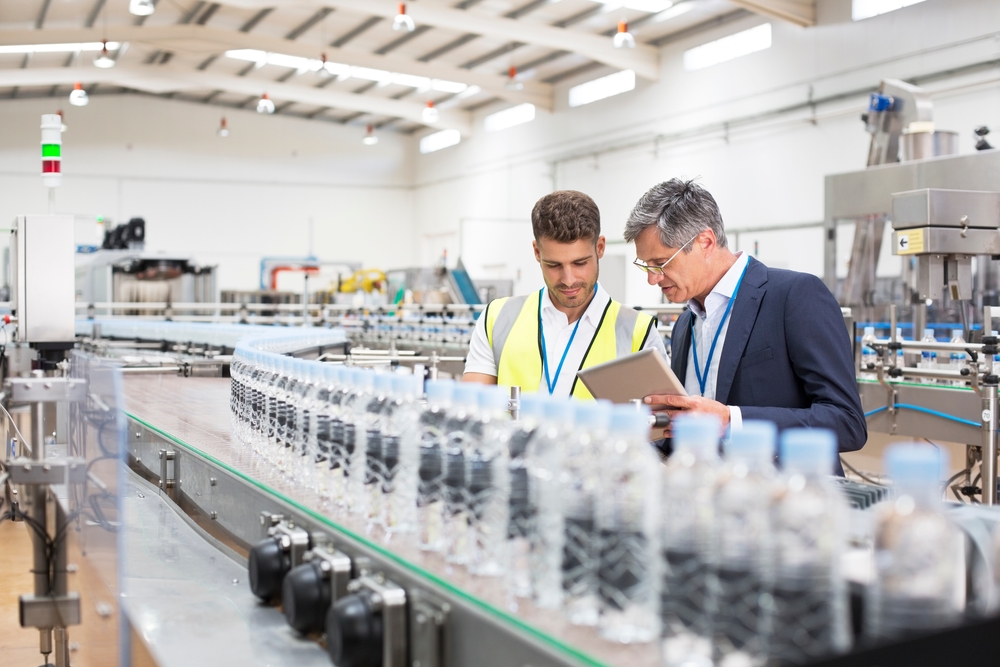In today’s fast-paced and highly competitive manufacturing arena, efficiency, consistency, and cost-effectiveness are key factors that help determine the success of a company. For many decades, repetitive manufacturing techniques, sometimes known as mass production or continuous manufacturing, have enabled enterprises to streamline processes, reduce lead times, and reduce costs. While repetitive manufacturing is nothing new, advances in automation and increased prioritization of worker safety have ensured that the industry continues to evolve and innovate, coming up with new modern-day approaches that contribute to an increasingly lean and optimized supply chain.
Repetitive manufacturing is a method of production that involves the mass creation of identical products on a regular basis. This method is typically used for high-demand products to ensure inventory can keep up with demand. Over the years and as technology advancement skyrocketed, the repetitive manufacturing production process has become even more efficient and now not only involves the use of assembly lines but also automated systems and other technologies that allow for fast-paced production with minimal human involvement required.
This modernized repetitive manufacturing process offers a variety of benefits to companies, consumers, and the supply chain:
- Enhanced efficiency: By automating various processes and using technologically advanced machinery, manufacturers can achieve high-speed production with consistent quality. Modernized repetitive manufacturing reduces the need for manual intervention in standardized processes, decreasing the time and effort required for production. As a result, manufacturers can produce a higher volume of products in less time, boosting efficiency and profits.
- Lower costs: By optimizing production processes, manufacturers can drive down costs in many areas. Repetitive manufacturing allows for bulk purchasing of raw materials, components, and equipment which leads to reduced unit costs. Additionally, modern repetitive manufacturing allows for the automation of tasks, eliminating the need for excessive manual labor and reducing associated labor costs. Lower costs enable companies to offer competitive pricing, attract more customers, and increase profitability.
- Improved product quality: Consistency is key when it comes to manufacturing. By employing standardized processes and quality control measures that come with repetitive manufacturing, companies can ensure consistent product quality across each item produced – which enhances customer satisfaction, builds brand reputation, and fosters customer loyalty, ultimately contributing to increased market share and revenue growth. Additionally, advanced technologies, such as robotics, enable precise and accurate assembly and packaging, which minimizes errors and variations. With automated inspections and quality control measures in place, manufacturers can maintain strict standards throughout the production process.
- Streamlined supply chain: Repetitive manufacturing relies on stable and predictable demand patterns, allowing manufacturers to establish efficient supply chain networks, reduce lead times, and enhance overall efficiency. By accurately forecasting demand and aligning procurement, production, and distribution activities, companies can minimize inventory holding costs and eliminate bottlenecks. Streamlining the supply chain improves agility, enabling businesses to quickly adapt to market changes and customer demands.
- Improved worker safety: Automation and robotics can not only improve productivity but also enhance worker safety throughout the manufacturing industry. With modern repetitive manufacturing, monotonous tasks that are physically demanding or potentially hazardous can be delegated to machines, reducing the risk of work-related injuries. This allows manufacturers to create a safer work environment for employees, leading to reduced accident rates and improved employee well-being.
Repetitive manufacturing offers undeniable advantages for manufacturers across industries. By embracing new and modernized standardized processes, manufacturers are finding new ways to optimize resources, streamline supply chains, enhance productivity, and lower costs across their operations.
Companies committed to streamlining their supply chains use iGPS plastic pallets for all their shipping needs. Our lightweight, recyclable plastic pallets help make greener supply chains and reduce the Total Cost of Business. For more information, contact us at 1-866-557-0047, email a specialist at switch@igps.net, or visit our contact page.



